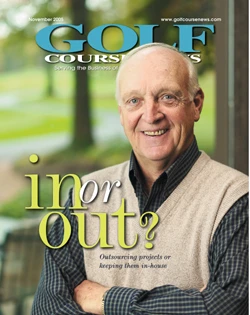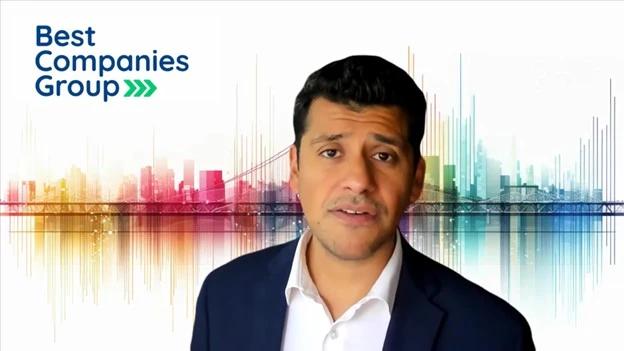Distribution evolves to meet superintendents’ needs.
Like everything else in the industry, the way superintendents receive their pesticides has evolved. Gone are the days of loading up the truck at the nearest store and hauling the chemicals back to the course. The store now visits the golf course.
|
|
“Our philosophy is that the golf course superintendent wants three things from his suppliers: quality products, convenient and reliable product supply, and technical expertise,” says former president and chief executive officer Michael DiMino. “Our goal is to provide all three through our unique Stores-on-Wheels vehicles. We introduced our Stores-on-Wheels concept in the 1970s, and these vehicles are at the heart of why LESCO has grown its golf business over the past 30 years.
“Our Store-on-Wheels vehicles carry nearly 200 key products on them every day, they bring these products right to the golf course superintendent on regularly scheduled visits, and they are driven by technical experts,” he adds.
Buddy Reid, specialty division manager for the upper Midwest and far Western states for Helena Chemical Co., echoes DiMino’s thoughts and says he sees consolidation as the next step in distribution.
“We must become more efficient,” Reid says. “High fuel prices could have an impact on the quality of services. We hope not. Government regulations will dictate to a large degree how distribution looks in the future.”
Internet effect
Reid also says the Internet will improve communications between customers and distributors.
To DiMino, the Internet is a large piece of the distribution puzzle, but there’s more.
“The real question is how will technology in general impact distribution,” he says. “And the challenge for any distributor is to make sure they are evaluating the opportunities offered by any new technology and integrating it into their business when there is opportunity to increase value to the customer.
“Of course, we have certainly embraced the Internet as one way to do this, such as with our new LESCODirect Web site,” he adds. “Now, our customers can order product whenever it is convenient for them, and we will either deliver the product to them or they can pick it up.”
According to DiMino, the number of customers ordering online is steadily increasing. In addition to ordering, customers pay bills, print invoices, review order history and manage all facets of their accounts online.
“We are also working very hard to use new technologies that will connect our Stores-on-Wheels to our order entry system and customer database in live time wherever they are in the country,” DiMino says. “This will allow us to get orders entered faster and product delivered to golf courses faster.”
Keith Woodruff, marketing manager for ProSource One, sees the Internet changing the business slightly, but still prefers the face-to-face aspect of distribution.
“It’s not significant yet,” Woodruff says about online business. “We see a little more online ordering, and we see more e-mail communications. It’s going to be more significant, but this is still a relationship business.”
Woodruff says it’s impossible to label the market one way or the other, but says ProSource One tries to tool its approach with customers on a case-by-case basis.
“The market is segmented,” he says. “Some buy strictly on price, while others are more interested in service. It’s hard to generalize because every customer is different. We try to identify specific needs for each golf course. What value can you bring to the customer at his golf course?”
Manufacturers’ role
Though customer satisfaction is the ultimate goal of any distributor, little could be done without those who make the products. Manufacturers are very important to Helena, Reid says.
“They are our supply of products and the source of technology we sell,” he says. “Without the research the manufacturer has done, we would have very few products to sell.
“The biggest question is if we sell only generics, who is going to pay for research in the future?” he asks. “The product line we have today will become obsolete. We must continue to fund product development.”
Scott Eicher, senior product marketing manager for herbicides for Dow AgroSciences, appreciates the work done by distributors.
“We don’t go direct to the end user,” he says. “It’s not our role to call on each golf course, that’s what the distributors do and are good at it. Dow won’t invest in a sales force because that would duplicate what the distributors already have in place. Our role is to discover new molecules that meet a need in the marketplace, get them registered and provide technical support for the end user and distributor.
“Some manufacturers try to discourage distributors from carrying generic pesticides, but our goal is to promote the best service to get the user to select our products,” he adds. “We don’t restrict distributors to what they carry. It’s free and open fair trade, and that’s what it needs to be.”
Owen Towne, president of Phoenix Environmental LLC, relies on distributors to get his post-patent products in the hands of superintendents.
“The distributors are our arms and legs and do a majority of the calls to golf course for us,” Towne says. “Phoenix depends on the distributors to create a demand for the products it sells. The distributors don’t carry a competing product with the same active ingredient, such as clorothalonil, but in some cases will offer the name brand along with the generic they are selling.”
DiMino says LESCO and the manufacturers it works with have a common goal – assisting the superintendent.
“Quite simply, our relationships with our vendors are business partnerships that work very well for everyone involved because we share the same goal of helping the golf course superintendent,” he says. “We work with our vendors on new product development, new promotions, customer education and so forth.”
And the relationships between distributors and manufacturers continue to grow, DiMino says.
“More and more of our vendor partners are recognizing the value that distributors bring to the marketplace, and they are treating us accordingly,” he says. “They are working with us based on our respective strengths instead of simply treating us all the same, and they are respecting our right to make decisions that we think are in the superintendents’ best interests. That flexibility is critical so that we can treat superintendents the way they deserve to be treated, which is as unique individuals with unique situations.”
Woodruff says the majority of products ProSource One carries are branded, but the company is constantly evaluating brand vs. generic strategies. He says brand names carry a value, but the number off-patent products will continue to increase.
Choice
With ample options in the distribution market, Reid thinks a superintendent’s choice of a distributor comes down to the expertise and value provided. He says the superintendent should consider his needs and ask: Is the distributor meeting them at a reasonable price?
DiMino says the condition of a course is the deciding factor in the superintendent/distributor relationship.
“Each superintendent clearly has plenty of options when selecting a supplier, and a lot of factors have to be factored into the decision,” he says. “Which suppliers will help him be more efficient and get more work done faster? Which supplier’s products are the most reliable? Which supplier has the most technical expertise to offer? And the list goes on and on.
“In short, the superintendent has to decide which supplier or suppliers offer him the best overall value and does the best job meeting his needs so he can focus on what really matters – taking care of his course,” he adds.
Woodruff says timing and support are critical when choosing a distributor. Also, price is an issue, but he says the lowest price and a fair price are two different things.
“The wrong product at a cheap price doesn’t save a lot of money,” Woodruff says. GCN

Explore the November 2005 Issue
Check out more from this issue and find your next story to read.
Latest from Golf Course Industry
- Editor’s notebook: Green Start Academy 2024
- USGA focuses on inclusion, sustainability in 2024
- Greens with Envy 65: Carolina on our mind
- Five Iron Golf expands into Minnesota
- Global sports group 54 invests in Turfgrass
- Hawaii's Mauna Kea Golf Course announces reopening
- Georgia GCSA honors superintendent of the year
- Reel Turf Techs: Alex Tessman






